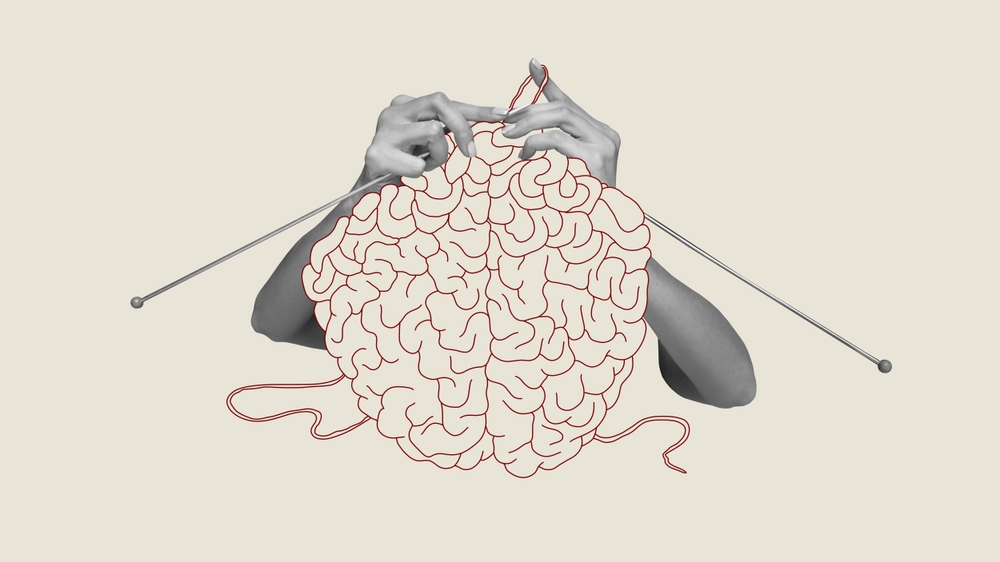As I order my coffee at the counter of my favourite café and dictate an email into my phone waiting to collect my steaming latte, I am struck by how rapidly Artificial Intelligence (AI) is transforming our world. From the personalised recommendations that power our smartphones to the intelligent systems that are revolutionising many businesses, AI is becoming an inescapable part of our daily lives. As an educator, I cannot help but wonder: are we preparing our students adequately for a future where AI will play an increasingly central role in their work and their lives?
Back in 2017, I wrote a book called “Machine Learning and Human Intelligence,” because I wanted to draw attention to the way that we were underestimating the sophistication of our own human intelligence and risking that we would overestimate the sophistication of our AI. You can download this book for free here: https://www.educateventures.com/_files/ugd/c43582_3950bb11755d4306ba9dc33811bbfc25.pdf, and I believe it is as relevant now as it was back in 2018 when it was first published. I argue that our current methods for identifying, discussing, and valuing human intelligence are impoverished compared to the richness and complexity of the human mind. By relying on these limited tools, we risk underestimating and undermining the very qualities that make us human. This is particularly concerning as AI systems become more advanced and capable of outperforming humans on a growing range of cognitive tasks.
In the book, I propose an ‘interwoven’ model of human intelligence that encompasses seven key elements: interdisciplinary academic knowledge, social intelligence, meta-knowing intelligence (also known as epistemic cognition), meta-cognitive intelligence, meta-subjective intelligence, meta-contextual intelligence, and accurate perceived self-efficacy. If we want to equip students with the skills and knowledge they need to thrive in an AI-driven world, we must cultivate sophistication across all these elements. In other words, we must equip students with very sophisticated thinking and learning skills so that they can master the process of learning and master their knowledge of the world and of themselves.
Right now, it might seem that the future belongs to AI, but if we get the education right, human intelligence will continue to be our most valuable resource and the future will belong to human societies, not robots. The question is: are we ready to rise to the challenge?
Perhaps the framework below will help you to explore the way you and your colleagues would like to respond to these changing times. It is a framework for education that prioritises AI literacy, learning mastery, and knowledge mastery, alongside traditional numeracy and literacy skills.
The 5-Star Matrix for Living in Prosperity with AI:
- Numeracy: Mathematical skills remain essential, including computational thinking, data analysis, and problem-solving.
- Literacy: Reading, writing, and communication skills continue to be crucial for success in the modern world.
- AI Mastery: Students need a non-technical understanding of AI, including its strengths, weaknesses, and ethical implications. This will enable them to make informed decisions and effectively navigate a world increasingly shaped by AI.
The final two components in this matrix are the meta intelligence of the interwoven model impact on nurturing the advanced thinking capabilities that enable students to learn and become increasingly intelligent.
- Learning Mastery: This involves developing sophisticated awareness and regulation of thinking, emotions, embodied intelligence and self-efficacy to enable students to become supremely good at learning.
- Knowledge Mastery: Students need to acquire knowledge about the world, knowledge about knowledge (epistemic intelligence), and accurate knowledge about themselves, or self-perception.
But none of these advanced thinking capabilities can be taught in a disciplinary vacuum, they must be embedded within the traditional subject disciplines that become the medium through which these sophisticated cognitive processes are taught.
Nurturing Creativity and Imagination:
As AI systems become more advanced, it is essential to nurture human creativity and imagination. Subjects such as art and drama should be given greater emphasis in the curriculum, as they serve as valuable tools for developing learning and knowledge mastery.
Assessment and Measuring Progression:
To support an intelligence-based approach to education, assessment methods are needed to measure growth and progression across all elements of the 5-star matrix. This requires:
– Clear specification of success criteria
– Learning activities that break down complex goals into manageable subgoals
– Mechanisms for identifying progress towards goals
– Feedback that helps learners move towards their goals
And AI can help with this assessment challenge. AI can be leveraged to capture data on individual learners’ development, providing insights into their perseverance, motivation, and confidence, which can be used by teachers to support their flourishing intelligence.
I don’t underestimate the size of the challenge for schools as they tackle substantial educational innovation. There will certainly be a need for professional development for teachers to enable teachers to effectively integrate AI literacy and creative approaches to delivery into the curriculum. Plus, a healthy appetite for tapping into additional expertise through fostering partnerships with local businesses and communities to create Local Lifelong Learning Hubs that ensure students acquire the necessary AI and digital skills.
By prioritising the development of advanced human intelligence alongside traditional skills, we can empower students to thrive in an AI-driven world while maintaining the unique qualities that set human intelligence apart from artificial intelligence.
Education Technology That You Might Be Of Interest:
Get a special discount by quoting code AISLMALL during CHECKOUT.
Across Cultures - Learning Village Blended Learning for EAL & Multilingual Learners
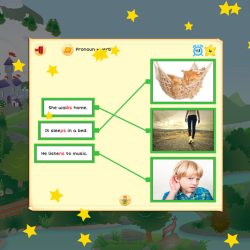
The Learning Village is an image-based English as an Additional Language (EAL) programme for pupils in English-medium schools. Learning Village, a blended vocabulary, language structure and reading programme for EAL, low-level literacy and SEND learners from 6-11 and 12-16 years old.
Book Creator
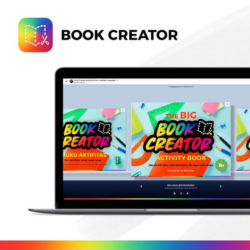
Book Creator was established in 2011 and is based in the UK. Book Creator is a versatile digital tool that allows users of all ages and abilities to create interactive multimedia books. It fosters creativity, collaboration, and digital literacy, supporting various learning styles. With over 2 million books created monthly, it enhances student engagement and learning.
BOOX – E ink tablet Series

BOOX has more than 10 years of experience in developing eye-protection e-books to help you learn more about different types of e-book products. BOOX – E ink tablet Series ; Go Color 7″ (Black) (HKD1,998 with case) Original: HKD2,498 ; Go 10.3 ($2998 with case) Original: HKD3,498 ; 10.3” Tab Ultra C Pro ($4,998 with case) Original: HKD5,498
Cathoven – Language Hub
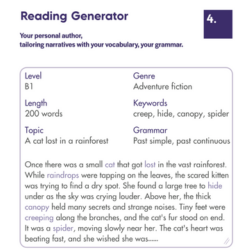
Founded in 2022, Cathoven is a smart assistant tailored for language educators, helping them create level-appropriate lessons and exams, assess and score student work, identify weaknesses, and provide actionable feedback. Used by top institutions like Columbia Uni, Cathoven was ranked the second-best AI in Education project by QS after Duolingo.
Earth Cubs Environmental Content
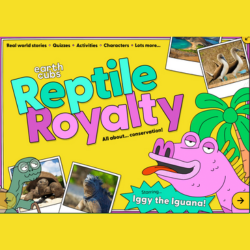
Earth Cubs offers free, award-winning content on sustainability, climate change, and the environment. Through positive storytelling, it inspires young children on topics like renewable energy and equality, aligning with the UN’s Sustainable Development Goals, and is supported by mission-aligned organizations.
ELimu - Learning Games
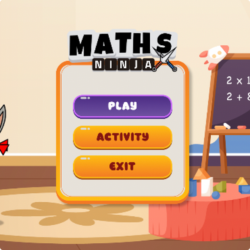
eLimu World is an interactive learning platform designed for kids aged 4-8, offering a range of fun, inquiry-based learning (IBL) games that help children learn better and faster. Our solutions cover key subjects like math and science, using a gamified approach that keeps kids engaged while building essential skills.
KAZ – Specialised and Accessible Touch-Typing Software
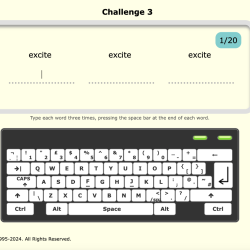
KAZ’s inclusive touch-typing course for home and schools supports mainstream, neurodivergent, hearing-impaired, and visually impaired learners. It’s an online tutorial with minimal teacher intervention, and structured lesson plans are available. Learners can access it from school or home on Macs, PCs, Chromebooks, and iPads.
Nova AI Mentor: Redefining Personalised Learning
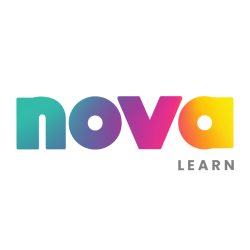
Novalearn Limited is an EdTech company transforming education by seamlessly integrating machine learning, studio-produced edutainment, and quality STEAM education aligned with international K-12 curricula. Enhance school-wide performance with advanced analytics and intelligent recommendations for students. Customisable to your school’s needs and rubrics. Supportive adaptive learning system. Automatic generated reports for teachers and principals.
School365 - SaaS platform
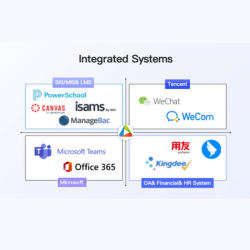
School365 is a SaaS platform designed for K12 international schools in China, offering seamless integration of data and processes. It provides administrators with powerful insights and efficient management tools, while its customizable design ensures scalability to meet the unique needs of schools.







